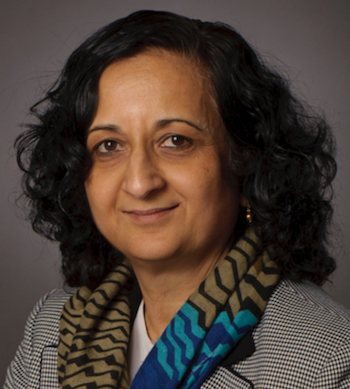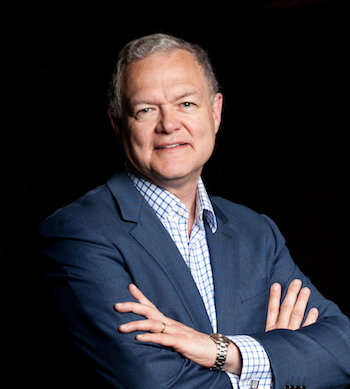UBIsym on Robotics and Vehicular Technologies
Second edition of International IEEE symposium with the theme "Robtics and Vehicular Technologies", helded in the magnificent countryside of Portugal.

The second edition of UBIsym, an IEEE symposium at the region of Universidade da Beira Interior, Portugal, will take place from 11 to 13 October 2019 with the theme “Robotics and Vehicular Technologies”.
It will consist of a first day (11) of workshops (at UBIs’ Faculty of Engineering), a second day (12) of presentations led by distinguished lecturers (at “Casino Fundanense”), inserted in several sections of engineering linked to robotics and vehicular technologies, and a third and final day (13) including a bus tour around the countryside of Portugal, visiting some of the most typical villages in the area, when the participants, guests, and lecturers will have the chance to visit some castles, gardens, mountains, some breath-taking landscapes and taste the phenomenal Portuguese gastronomy and feel the Portuguese way of life.
The event will take place inside “Casino Fundanense”, located in Fundão, and Universidade da Beira Interior, Covilhã.
Date and Time
Location
Hosts
Registration
-
 Add Event to Calendar
Add Event to Calendar
- Praça do Município 20
- Fundão, Centro
- Portugal 6230-338
- Building: Casino Fundanense
- Click here for Map
- Contact Event Host
- Co-sponsored by IEEE Portugal Section
- Survey: Fill out the survey
Speakers
 Professor Anuradha Annaswamy of Massachusetts Institute of Technology (USA)
Professor Anuradha Annaswamy of Massachusetts Institute of Technology (USA)
Socio-technical modeling and control for urban mobility
Urban mobility in Transportation is witnessing a transformation due to the emergence of new concepts in Mobility on Demand, where new modes of transportation other than private individual cars and public mass transit are being investigated. With a projection of a total number of 2 billion vehicles on roads by the year 2050, such innovations in transportation are urgently needed. One such paradigm is the notion of shared mobility on demand, which consists of customized dynamic routing for multi-passenger transport. A solution to this problem consists of a host of challenges that ranges from distributed optimization, behavioral modeling of passengers, traffic flow modeling, and distributed control. Recent efforts in our group have made some inroads into this problem and form the focus of this talk. A socio-technical model that combines behavioral models of passengers based on Cumulative Prospect Theory and traffic models will be discussed. The solution to dynamic routing is presented in the form of an optimization problem solved via an Alternating Minimization based approach. The model together with the optimization framework is then used to propose a dynamic tariff that can be viewed as a model-based control strategy based on Transactive Control, a methodology that is being explored in power grids for incentivizing flexible consumption.
Biography:
Dr. Anuradha Annaswamy is Founder and Director of the Active-Adaptive Control Laboratory in the Department of Mechanical Engineering at MIT. Her research interests span adaptive control theory and its applications to aerospace, automotive, and propulsion systems as well as cyber-physical systems such as Smart Grids, Smart Cities, and Smart Infrastructures. Her current research team of 15 students and post-docs is supported at present by the US Air-Force Research Laboratory, US Department of Energy, Boeing, Ford-MIT Alliance, and NSF. She has received best paper awards (Axelby; CSM), Distinguished Member and Distinguished Lecturer awards from IEEE CSS, and a PYI award from NSF. She is a Fellow of IEEE and IFAC. She will serve as the CSS President in 2020.
Address:Massachusetts, United States
 Professor Iven Mareels of IBM Research (Australia)
Professor Iven Mareels of IBM Research (Australia)
Renewable Energy Based Grid Futures – A View from the Last Mile
The electricity grid is undergoing a paradigm shift. The classic grid goes back to the days of the first pioneers such as Edison, Westinghouse and Siemens and has little changed over a century of deployment. The classic electricity grid is a centralised system with few large power sources with inherently large inertia supplying over a large network a distributed base of many relatively small consumers, who are essentially in control of their demand. The new grid will have many distributed generators, using unreliable and variable primary energy (read solar energy), and using power electronics to inject power into the grid. Moreover, the roles of the consumer will change dramatically, and they will be able to participate in the electricity market in many different capacities, perhaps even sacrificing some of their control over their consumptive energy demand.
In the new grid, the engineering complexity is therefore significantly larger than in the classic grid. The sources are spatially distributed, demonstrate many different technologies and exhibit a greater range of different capacities, with generally less (temporal) reliability than is classically the case. Equally on the demand side technologies are changing, with an expanding electrical footprint as general personal transport becomes increasingly electrified. Moreover, new consumers (prosumers, and aggregators) and new services are entering the electricity energy market.
In engineered systems variability in supply is normally counteracted through buffers, and complexity requires more control to maintain the desired quality of service. The electricity grid is no exception. However, buffers require the consideration of energy as the primary quantity to manage rather than power. Moreover, distributed control requires more sensors and communication than hitherto has been necessary.
This talk presents an overview of the main issues, and through a control engineering lens develops how modern “internet-of-things” technology may enable the paradigm shift towards energy as the main guiding principle to control the grid, whilst maintaining the classic quality of service measures in terms of reliability, voltage and frequency regulation that we have come to enjoy. Remarkably this transition may even be realised whilst leaving the consumer in control of their demand, at least from an energy perspective.
Biography:
Prof. Iven Mareels is the director of IBM Research - Australia. He is an eminent leader in the Australian research community and joined IBM Research in February 2018 following a 20-year career at the University of Melbourne, where he spent the last 10 years as the Dean of the Melbourne School of Engineering. Prof. Mareels leads the IBM Research team in Melbourne and works with the IBM network of research labs to accelerate the work IBM Research leads in the areas of health informatics, artificial intelligence, blockchain and quantum computing.
Prof. Mareels is a researcher at heart and loves to explore new directions, opportunities and solve problems. He is passionate about exploring complex issues in depth and making a difference in people’s lives by transforming ideas into innovative technology.
Over the years, Prof. Mareels has played a leading role in the development of hardware and software that manages water distribution in a highly effective way. This technology has a proven ability to improve water management significantly, all but eliminating the majority of water losses in large scale water distribution networks. This technology has been commercialised by Rubicon Water Pty Ltd. For this work he received a Clunies Ross Award from the Academy of Technological Sciences and Engineering in 2008.
More recently, at IBM Research, Prof. Mareels has been focusing on two key AI application areas. First in the context of energy management. In particular his team focuses on demand management, as a new paradigm in grid management. The team is exploiting the thermal inertia (thermal energy services consume more than 40% of electricity supply) to drastically increase overall energy efficiency whilst reducing cost for consumers and creating more opportunities to integrate renewables. Secondly, he is focusing on AI for the Eye. An ambitious scientific programme that employs readily available image technologies to observe through the eye, brain and cardiovascular health. Combining a time series of images with regular lifestyle observations, his team is driving towards personalised preventive medicine at scale. This approach will significantly increase the productivity of health practitioners and reduce the societal and economic burden associated with reactive medicine.
Prof Mareels received the Masters of Electromechanical Engineering in 1982 summa cum laude from the University of Gent, Belgium and the PhD from the Australian National University in 1987 with a thesis on dynamics of adaptive or learning systems. He has published widely, with more than 500 refereed publications, and he has supervised more than 50 PhD students. He holds 39 internationally granted patents that focus on the management of large scale, open channel, water distribution networks.
Prof Mareels is a Fellow of The Academy of Technological Sciences and Engineering (Australia); The Institute of Electrical and Electronics Engineers (USA), the International Federation of Automatic Control and Engineers Australia. He is a Foreign Member of the Royal Flemish Academy of Belgium for Science and the Arts. He is internationally registered as a professional engineer: FIEAust CPEng EngExec NER APEC Engineer IntPE(Aus).
Address:Australian Capital Territory, Australia
Agenda
It will consist of a first day (11) of workshops (at UBIs’ Faculty of Engineering), a second day (12) of presentations led by distinguished lecturers (at “Casino Fundanense”), inserted in several sections of engineering linked to robotics and vehicular technologies, and a third and final day (13) including a bus tour around the countryside of Portugal, visiting some of the most typical villages in the area, when the participants, guests, and lecturers will have the chance to visit some castles, gardens, mountains, some breath-taking landscapes and taste the phenomenal Portuguese gastronomy and feel the Portuguese way of life.
Starting on October 11 2019.

